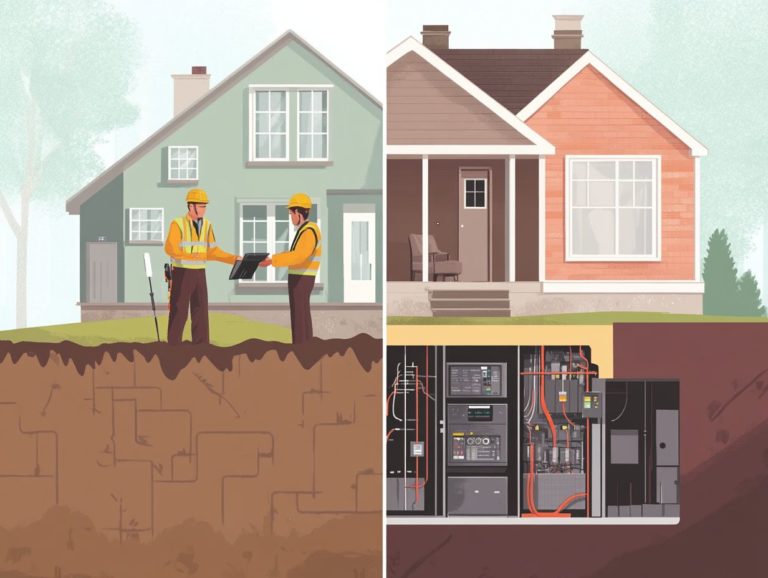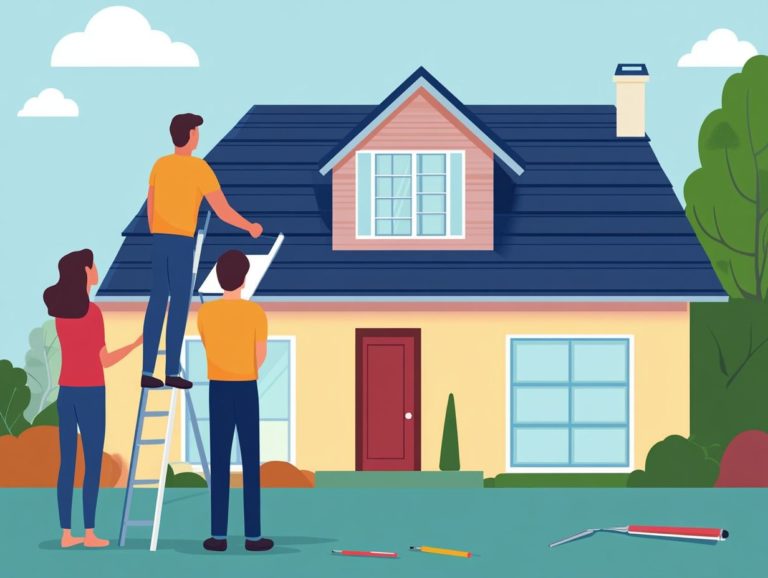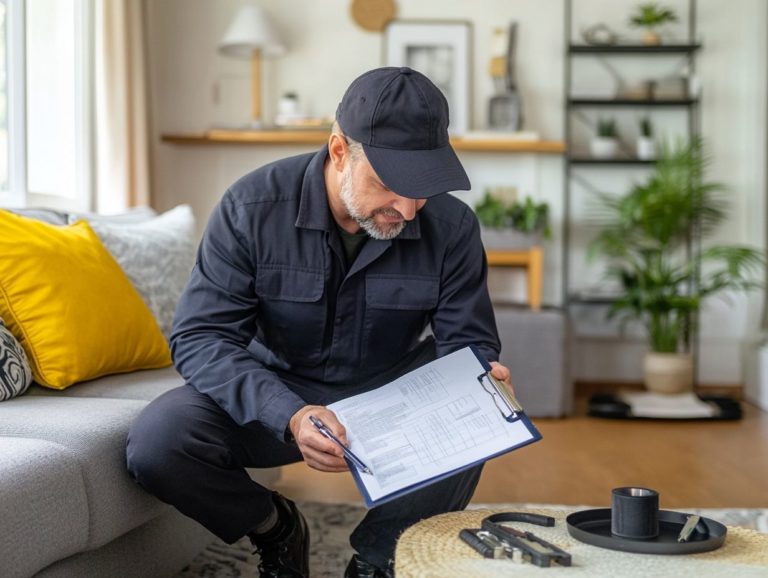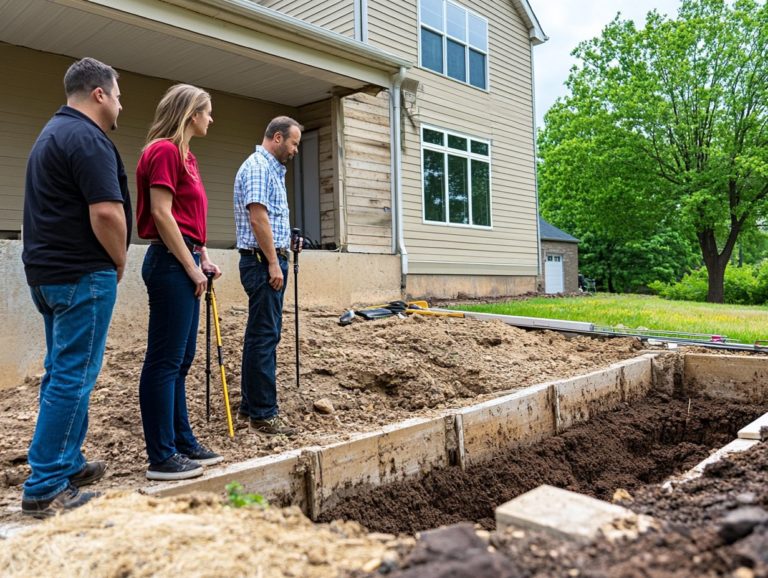The Importance of Home Inspections for Property Buyers
Buying a home ranks among the most significant investments you will ever make, and ensuring that your investment is sound is crucial.
A home inspection is a valuable way to find problems before you finalize the deal.
This article will guide you through every aspect of home inspections, from the inspection process to the red flags you should watch for.
You ll learn how to select a reliable inspector, what costs to anticipate, and tips for maximizing your inspection experience.
Get ready to empower your buying journey with invaluable insights!
Contents
Key Takeaways:
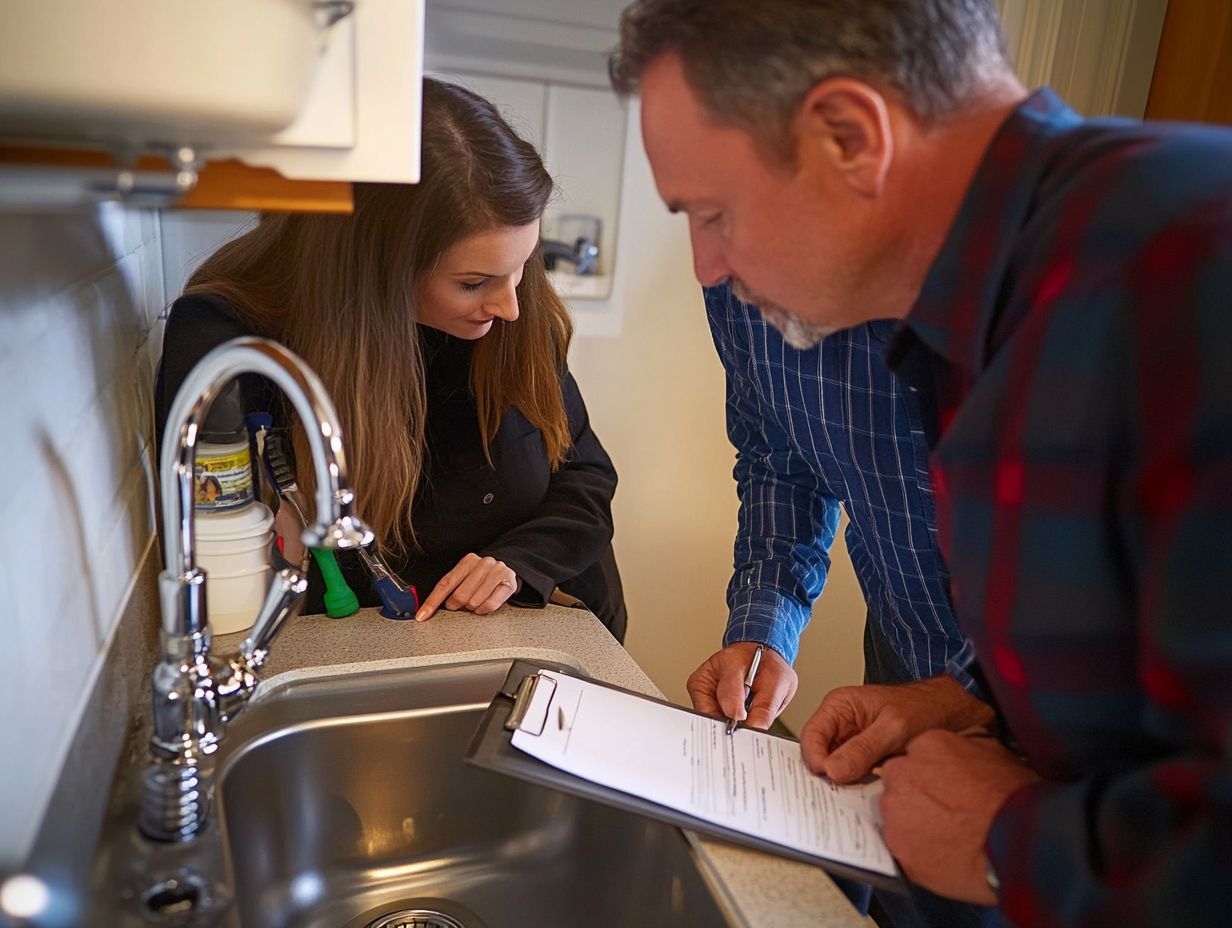
A home inspection is a crucial step for property buyers. It helps ensure the condition of the property and avoid costly issues in the future. Understanding the importance of home inspections in property transactions can reveal problems that may affect the value and safety of a property. When choosing a home inspector, consider their experience and qualifications, and ask about their process to ensure a thorough inspection.
What is a Home Inspection?
A home inspection is an essential assessment carried out by a qualified home inspector to evaluate the condition of a property. Understanding the role of home inspections for first-time buyers ensures that big decisions, such as purchasing a home, are made with a complete understanding of any potential issues.
During the inspection, the inspector examines critical components like structural integrity, which means the strength and stability of a building, electrical systems, plumbing, and other vital elements. This is done according to industry standards set by reputable organizations such as the American Society of Home Inspectors and the International Association of Certified Home Inspectors.
Definition and Purpose
The definition of a home inspection serves as a crucial guideline, outlining its purpose as a systematic evaluation of a property. Understanding the importance of home inspections in real estate transactions ensures that both buyers and sellers are fully informed about all relevant issues before sealing the deal.
This process looks beyond just how the home looks, probing into the structural integrity, electrical systems, plumbing, and safety features of a home.
For buyers, a thorough inspection is a valuable asset that gives you the power to make informed decisions. Understanding the importance of pre-purchase home inspections allows you to negotiate repairs or price adjustments based on the findings.
For sellers, it offers an opportunity to address potential issues early, enhancing the property s appeal and helping to sidestep future complications during negotiations.
Ultimately, a well-executed inspection cultivates transparency and trust in the real estate market, establishing it as a vital step in real estate transactions.
Why Home Inspections are Important for Buyers
Home inspections are essential for you as a buyer, offering invaluable insights into the condition of a property. Understanding the importance of home inspections in property sales gives you the power to make informed decisions during the home purchase process and as you negotiate with the seller.
By uncovering significant issues before closing, you can sidestep buyer’s remorse and use the findings from the inspection to your advantage in negotiations. This helps you make the most of the inspection clause in your purchase agreement, safeguarding your investment.
Benefits of Getting a Home Inspection
Obtaining a home inspection presents many advantages for both buyers and sellers. It uncovers significant issues, reassures buyers about their investment, and highlights the importance of home inspections in real estate, opening the door for negotiations to address any concerns.
For you as a buyer, a comprehensive inspection acts as a protective measure, bolstering your confidence in making a well-informed decision regarding the property. Understanding the importance of home inspections for property investors reveals hidden problems that could lead to unexpected repair costs if overlooked.
As a seller, you gain insights into your property’s condition, enabling you to tackle issues early and enhance both its value and appeal.
Ultimately, both parties reap the rewards of a transparent process that fosters trust, offering peace of mind and reducing potential risks associated with real estate transactions.
Schedule your home inspection today to safeguard your investment!
What to Expect During a Home Inspection

During a home inspection, expect a thorough evaluation by a qualified inspector. They will uncover both major and minor defects, usually within a few hours.
Armed with a comprehensive home inspection checklist, the inspector will assess various components of the home, delivering invaluable insights that will be meticulously documented in a detailed report.
Step-by-Step Process
The step-by-step process of a home inspection includes a meticulous evaluation by a qualified inspector who carefully examines key components such as the roof, foundation, electrical system, and plumbing. This thorough approach is designed to identify any potential issues that may arise.
Your journey begins with a detailed exterior inspection, where the inspector checks the roof s condition and integrity for signs of wear, damage, or leaks. Next, attention shifts to the foundation, where any cracks, drainage issues, or structural concerns that could compromise the home are assessed.
Then, the inspector delves into the electrical system, scrutinizing wiring, outlets, and panels to ensure safety and compliance with codes. Plumbing systems are also evaluated for leaks, pressure issues, and overall functionality.
Each of these evaluations is pivotal in painting a complete picture of the property’s health. This comprehensive assessment ultimately gives you, the potential buyer, the power to make informed decisions about your investment.
Common Issues Found During Home Inspections
Home inspections frequently uncover a variety of issues, ranging from minor defects to more significant concerns that can affect the overall safety and integrity of the property. You may encounter common problems such as:
- Structural deficiencies
- Electrical system malfunctions
- Plumbing issues
- Signs of mold and termite infestations
Each of these factors can have a substantial impact on the home’s value and play a crucial role in a buyer’s decision to move forward with the purchase.
Potential Problems and Red Flags
During a home inspection, you might encounter potential problems and red flags, such as significant problems with the building’s structure, outdated electrical systems, or plumbing leaks. These issues can seriously impact your buying decision, so pay close attention!
It s crucial to be aware of these concerns, as they could lead to costly repairs in the future. For example, if the foundation is compromised, it can pose safety hazards and require extensive repairs. Likewise, outdated wiring, which refers to old electrical systems that may not meet current safety standards, isn’t just a repair issue; it s a potential fire risk and may point to code violations. Plumbing problems, often lurking behind walls or beneath floors, can cause hidden water damage that jeopardizes the property s integrity.
Identifying these issues early lets you negotiate better terms or even consider walking away if the problems prove too severe.
How to Choose a Home Inspector
Selecting the right home inspector is essential for ensuring a successful home inspection. Consider several key factors, including the inspector’s qualifications and certifications from esteemed organizations such as the American Society of Home Inspectors and the International Association of Certified Home Inspectors.
Their knowledge of local inspection regulations is very important. Prepare questions to ask the inspector about their experience and the inspection process. This will help ensure a thorough and comprehensive evaluation of the property.
Don t wait start your search for a qualified home inspector today!
Factors to Consider and Questions to Ask
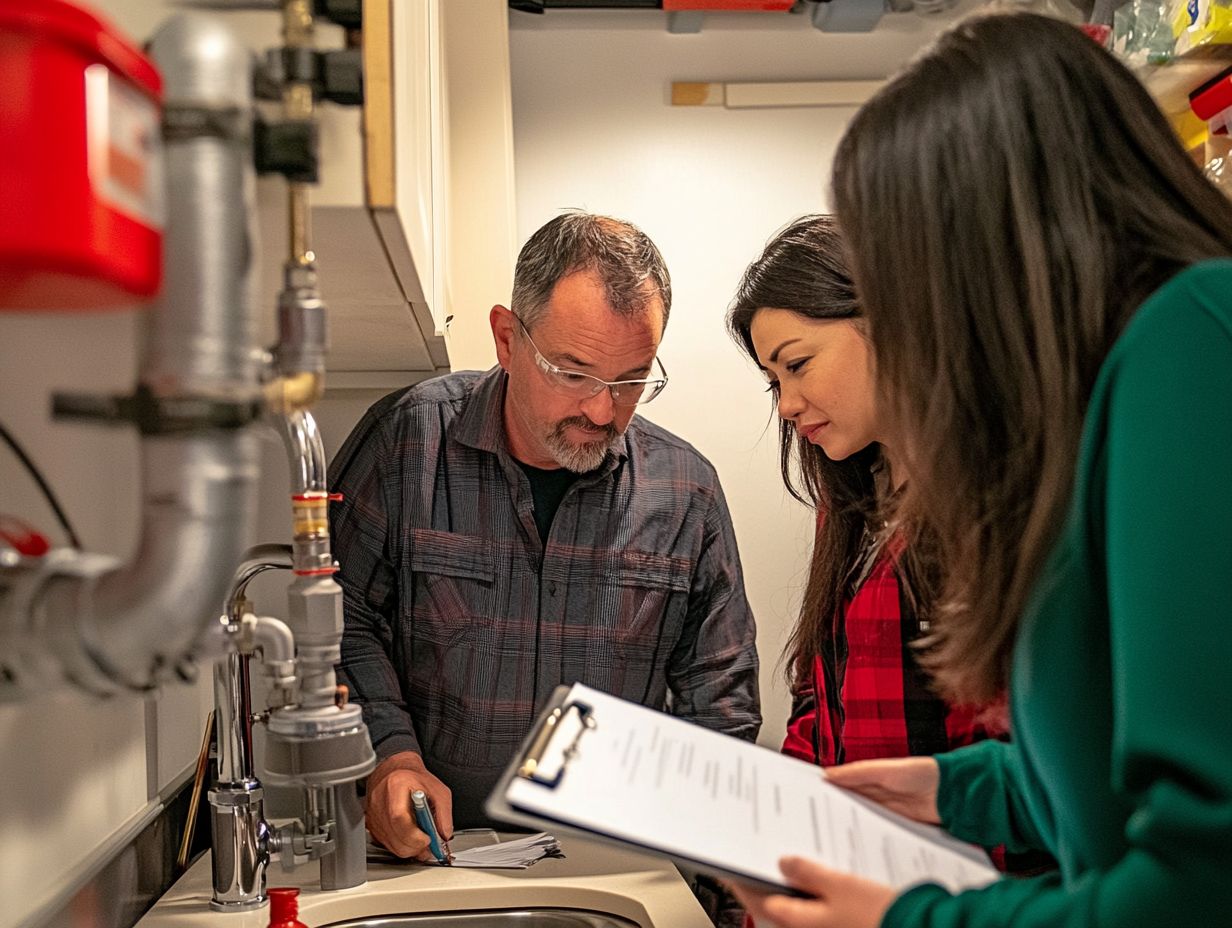
When selecting a home inspector, carefully weigh factors such as qualifications, experience, and reputation.
Ask the right questions to ensure you don t miss critical details! Inquire about the inspector’s certification and their affiliation with reputable associations; these often require ongoing education to stay current with industry standards.
Experience is significant, so ask how many inspections they conduct annually and whether they possess specific knowledge regarding the type of property you’re considering.
Review online testimonials and references for valuable insights into the inspector’s reliability and attention to detail.
Understand the scope of the inspection and the format of the final report to ensure you receive a comprehensive evaluation of the property.
Costs of Home Inspections
The costs associated with home inspections can fluctuate based on several factors. Average prices typically range from a few hundred to over a thousand dollars, influenced by property size, location, and the intricacies of the inspection process.
If you are leveraging an FHA loan, understanding these costs is essential, as they can affect your overall budget and the financing details of your home purchase.
Average Prices and What Factors Affect Them
Average prices for home inspections can vary widely. Factors include property size, location, and specific services included in the inspection process.
As a potential homeowner, consider the unique characteristics of your property; larger homes typically require more time and detailed assessments.
Geographical location also plays a crucial role urban areas often have higher inspection fees compared to rural counterparts, driven by demand and operational costs.
Certain inspection services, like pest examinations, radon testing, or mold inspections, can elevate prices, providing a customized yet often more expensive experience.
By understanding these variables, you can budget wisely and ensure you receive a thorough evaluation to make informed decisions.
Tips for Maximizing Your Home Inspection
To truly harness the value of a home inspection, come prepared. Know what to look for during the evaluation and familiarize yourself with essential aspects of home maintenance.
Engage actively with the home inspector and pose insightful questions. This will elevate the overall findings of the inspection, ensuring you are thoroughly informed before making that final purchase decision.
How to Prepare and What to Look For
Preparing for a home inspection means understanding crucial elements like the roof, foundation, plumbing, and electrical systems. This knowledge is essential for a thorough evaluation of the property.
Approach this process with a checklist, systematically marking off each area as you go. Start with the exterior; note any signs of damage or wear, like cracks in the foundation or issues with the siding.
Don t overlook the attic and basement these areas often harbor hidden problems. Engage with the inspector actively, asking questions and seeking clarification to gain insights into potential repairs or maintenance that may be necessary.
By taking a proactive stance, you can feel more confident in your investment and ensure that no detail is missed during this critical assessment phase. Take notes during the inspection to remember important findings!
Frequently Asked Questions
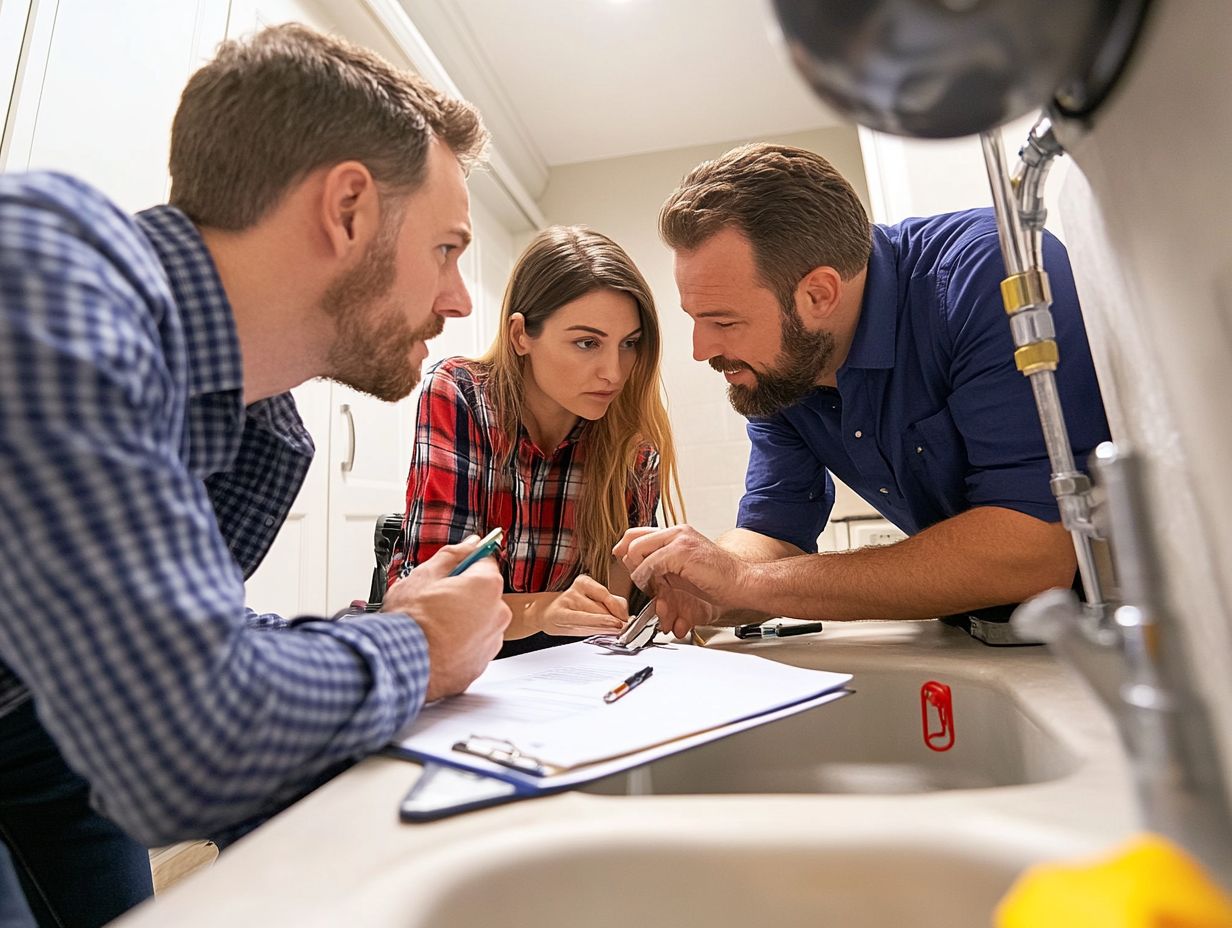
What is the importance of home inspections for property buyers?
Home inspections are crucial for property buyers as they provide a comprehensive assessment of the condition of the property. Understanding the importance of a home inspection for buyers helps them make informed decisions about the purchase and avoid potential issues or costly repairs in the future.
What does a home inspection involve?
A home inspection typically includes a thorough examination of both the interior and exterior of the property. Inspectors check for structural, mechanical, and safety issues, and may also test for mold, radon, and other hazards.
Who should conduct a home inspection?
Hire a professional home inspector with training and experience in evaluating properties. They have the right tools and expertise to identify potential problems and provide a detailed report.
When should a home inspection be done?
The home inspection should happen before finalizing the purchase agreement. This gives the buyer the chance to negotiate repairs or adjust the sale price based on the inspection findings.
Are home inspections required?
No, home inspections are not typically required by law. However, buyers should conduct a home inspection to protect their investment and be aware of any potential issues with the property.
Can a home inspection help with negotiations?
A home inspection report is a valuable negotiating tool. If major issues arise during the inspection, the buyer can request repairs or a price reduction, highlighting the importance of home inspections in real estate deals, potentially saving them from unexpected expenses later on.


